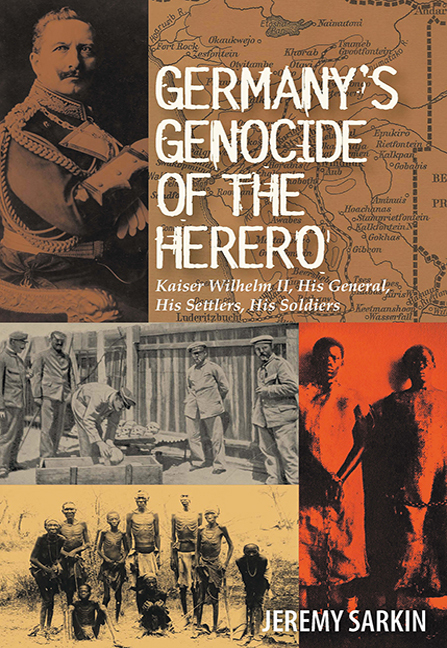Book contents
- Frontmatter
- Contents
- Foreword by the Paramount Chief of the Herero
- Preface
- Acknowledgements
- Introduction
- Chapter One Aetiology of a Genocide
- Chapter Two Implementing the Genocide: Annihilating ‘The African Tribes with Streams of Blood and Streams of Gold’
- Chapter Three Did the Kaiser Order the Genocide?
- Conclusion
- Bibliography
- Index
Chapter Three - Did the Kaiser Order the Genocide?
Published online by Cambridge University Press: 27 April 2017
- Frontmatter
- Contents
- Foreword by the Paramount Chief of the Herero
- Preface
- Acknowledgements
- Introduction
- Chapter One Aetiology of a Genocide
- Chapter Two Implementing the Genocide: Annihilating ‘The African Tribes with Streams of Blood and Streams of Gold’
- Chapter Three Did the Kaiser Order the Genocide?
- Conclusion
- Bibliography
- Index
Summary
A common goal of all researchers is to piece together who ordered the killings to commence in any given case. If in the twentieth century these mass murders were usually state-sponsored or at least officially sanctioned, who made decisions? What were their motives? These questions are particularly relevant if we want to hold leaders responsible for genocides or other grave human rights abuses before international courts. The problem for historians and jurists is that leaders and their agents try, usually with considerable success, to cover up their crimes and to destroy the evidence. Moreover, some states continue to deny crimes, including cases of mass murder and even genocide, committed by their predecessors. They also limit access to their archives and even persecute or threaten researchers. When scholars are finally granted access to their archives, they often find that evidence has been ‘laundered’ or destroyed. So reconstructing the decision-making process is often no easy task.
The lowest, most abject outrage ever to be perpetrated by any nation in history, that is what the Germans have done unto themselves. Egged on misled by the tribe of Judah whom they hate, who were guests among them! That was the thanks they got! Let no German ever forget this, nor rest until these parasites have been wiped out from German soil and been exterminated! This poisonous mushroom on the German oak-tree!
— Kaiser Wilhelm II, 1919Introduction
The role of Kaiser Wilhelm II, born Friedrich Wilhelm Viktor Albrecht von Hohenzollern 1859–1941, in the Herero extermination order has been debated over the years. Most people do not believe that the Kaiser gave the order to General von Trotha. Others, however, have speculated whether the Kaiser was behind the order. Even at the time of the genocide, such conjecture occurred. On 1 December 1906, August Bebel, an opposition Member of Parliament in the Reichstag, stated:
- Type
- Chapter
- Information
- Germany's Genocide of the HereroKaiser Wilhelm II, His General, His Settlers, His Soldiers, pp. 155 - 232Publisher: Boydell & BrewerPrint publication year: 2011



